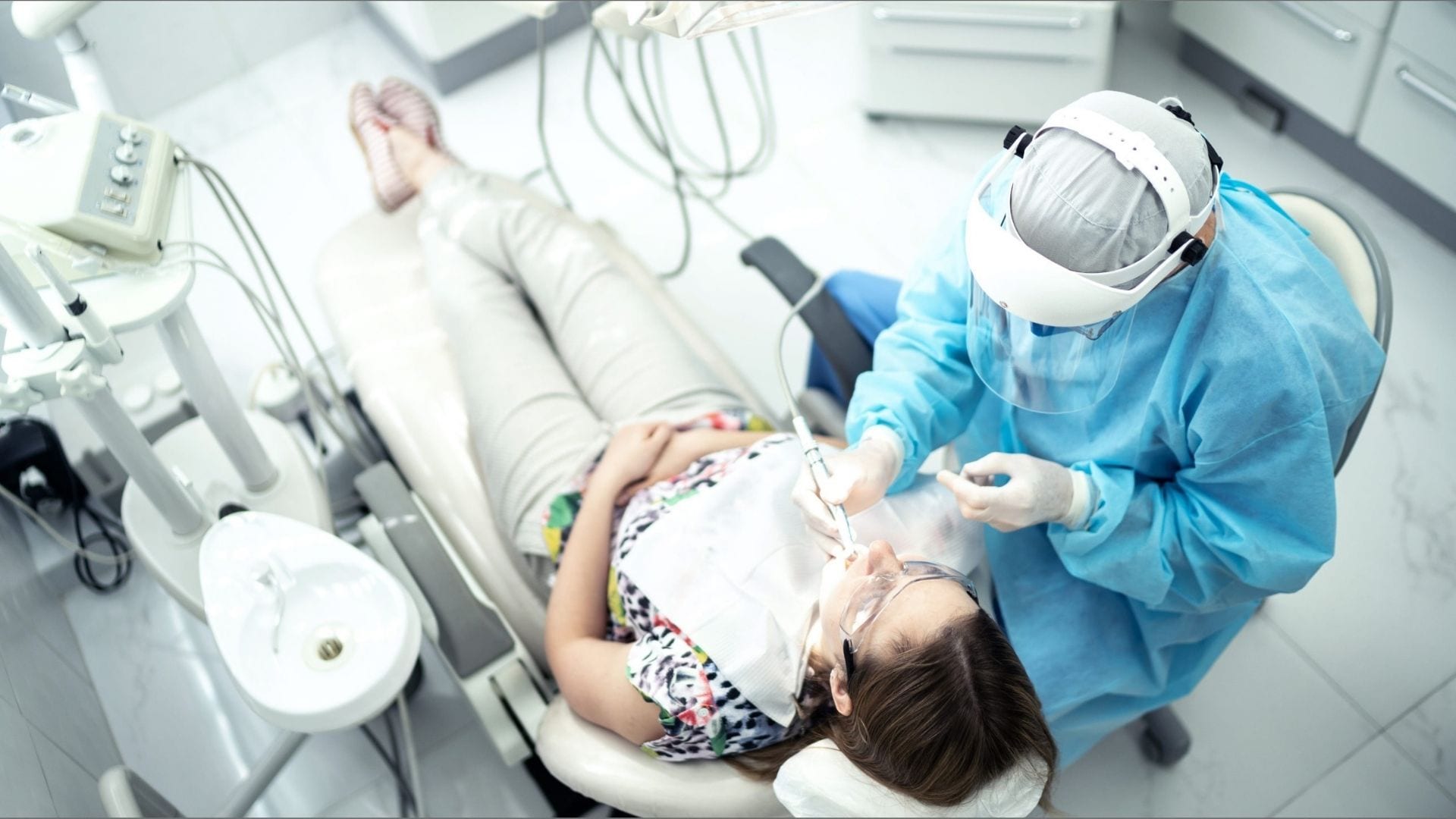Project Spotlight
How NBPI Helped One Medical Complex Reopen Safely

When U.S. states began lifting stay-at-home orders months after the COVID-19 pandemic reached the country in March 2020, even essential businesses grappled with how to reopen while limiting the spread of the airborne virus. Health care facilities such as medical and dental practices faced the tall task of caring for patients and helping them feel safer in a world impacted by the SARS-CoV-2 virus.
Tenants and property management at one Charlotte, North Carolina, medical complex took extra measures to safely reopen and resume patient care. The complex installed innovative needlepoint bipolar ionization (NPBI®) technology, which cleans indoor air by delivering positive and negative ions to spaces via the ventilation system. When these ions disperse throughout a space, they seek out and form bonds with particles in the air. The resulting snowball effect causes particles to cluster together — and the larger a cluster of particles becomes, the easier it is for the HVAC system to safely filter it out of the air.
“We needed a simple, effective, low-maintenance solution to providing cleaner air in our office,” said Scott Menaker, DDS, a dentist with Smile Charlotte.
Dr. Menaker serves as president of the Eastover Medical Park Association. He worked with Property Manager Rob Cutler of NAI Southern Real Estate to find a simple, cost-effective option for the facility’s tenants.
“I’ve dealt with bloodborne pathogens for 30 years, but (COVID-19) is the first widespread airborne pathogen,” Dr. Menaker said. “Instead of purchasing HEPA filtration units for each room, I wanted a simpler solution for my practice and our neighbors.”
A ONE-STOP SOLUTION TO CLEANER INDOOR AIR
Like most businesses, Smile Charlotte introduced new protocols and standards when it reopened in early May 2020. Dental care providers have always worn gloves and masks while administering treatment. Now, all providers and staff wear masks around the clock. Smile Charlotte also installed plexiglass barriers at check-in stations and requires patients to call the office when they arrive. Patients are screened for symptoms, and visitors are limited.
But Dr. Menaker wanted to take it a step further.
“I started wondering, ‘How do I create cleaner air?’” he said. “We considered air filtration units, but when I started counting the treatment and waiting areas in our office, I realized they weren’t a viable option. They also require ongoing maintenance, and filter replacement schedules vary by model. In a busy practice, who has the time to keep up with that?”
Dr. Menaker talked to a neighbor, a surgeon with a surgical suite and treatment rooms in his office. They discussed the fact that their offices are on a shared HVAC system — and realized they may be able to treat indoor air throughout the complex in a single step.
Next, the providers met with Cutler, who began researching indoor air quality solutions. AirTight FaciliTech, the commercial HVAC company that serves Eastover Medical Park, recommended Global Plasma Solutions (GPS).
After meeting with GPS Founder and Chief Technology Officer Charlie Waddell, they made the easy decision to install the company’s patented NPBI technology as an add-on to Eastover Medical Park’s existing HVAC system.
“NPBI made the most sense for our tenants,” Cutler said. “The system was affordable. Installation was simple and quick. We don’t have to worry about regular maintenance. And the technology’s safe for occupied spaces.”
Today, patients who arrive for treatment at Smile Charlotte may notice a small sticker in the front window, indicating that the ionization process happening inside is constantly working behind the scenes to render pathogens inactive and unable to spread.
A CRITICAL STEP FOR HEALTH CARE PROVIDERS
The coronavirus pandemic has transformed how businesses deliver services and how people interact with each other. What’s more, the virus — and its effects — won’t disappear anytime soon, if ever. But Dr. Menaker said investing in NPBI technology for his dental practice was about mitigating risk.
“There are no guarantees,” he said. “But for my business to survive, I have to do what’s needed to keep patients walking in the door. We’ve always worn gloves and masks, but still, we’re in close proximity to one another, and we’re sticking our hands in our patients’ mouths. They have to feel comfortable with that.
“For businesses that are dependent on that level of human interaction, and especially in an environment and a time where people are risk-averse, NPBI technology feels like a no-brainer.
“If someone tells you their indoor air is 100% safe, they’re making an impossible claim,” Dr. Menaker said. “There are just too many unknowns in today’s world. But we feel confident we’ve done all of the right things to keep everyone as safe as possible while taking care of our patients’ oral health needs.”
The COVID-19 pandemic created new health and safety challenges for office tenants, building managers and developers across vertical markets. But NPBI is one critical measure in a comprehensive approach to providing cleaner, safer indoor air. GPS NPBI technology has also been certified by UL 867 and UL 2998 as ozone-free, meaning it cleans the air without introducing ozone or other harmful byproducts.